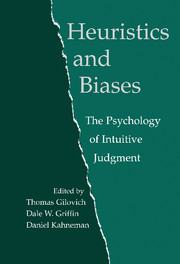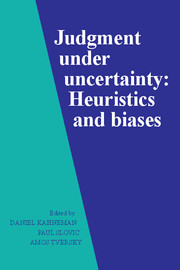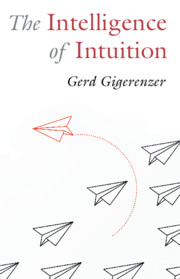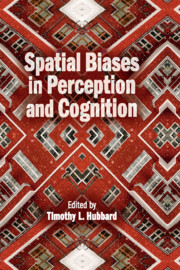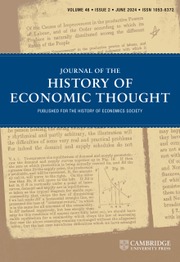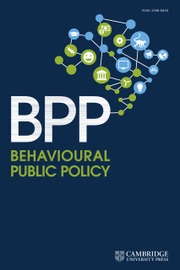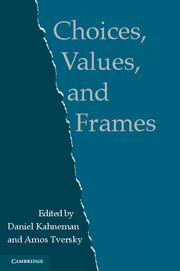Heuristics and Biases
The Psychology of Intuitive Judgment
£153.00
- Editors:
- Thomas Gilovich, Cornell University, New York
- Dale Griffin, Stanford University, California
- Daniel Kahneman, Princeton University, New Jersey
- Date Published: September 2002
- availability: Available
- format: Hardback
- isbn: 9780521792608
£
153.00
Hardback
Other available formats:
Paperback, eBook
Looking for an inspection copy?
This title is not currently available on inspection
-
Is our case strong enough to go to trial? Will interest rates go up? Can I trust this person? Such questions - and the judgments required to answer them - are woven into the fabric of everyday experience. This book, first published in 2002, examines how people make such judgments. The study of human judgment was transformed in the 1970s, when Kahneman and Tversky introduced their 'heuristics and biases' approach and challenged the dominance of strictly rational models. Their work highlighted the reflexive mental operations used to make complex problems manageable and illuminated how the same processes can lead to both accurate and dangerously flawed judgments. The heuristics and biases framework generated a torrent of influential research in psychology - research that reverberated widely and affected scholarship in economics, law, medicine, management, and political science. This book compiles the most influential research in the heuristics and biases tradition since the initial collection of 1982 (by Kahneman, Slovic, and Tversky).
Read more- Is the successor to Judgment Under Uncertainty: Heuristics and Biases (Cambridge University Press, 1982) and Choices, Values, and Frames (Cambridge University Press, 2000)
- Compiles the best research on the heuristics and biases approach to judgment under uncertainty
- Features Daniel Kahneman as an editor
Customer reviews
Not yet reviewed
Be the first to review
Review was not posted due to profanity
×Product details
- Date Published: September 2002
- format: Hardback
- isbn: 9780521792608
- length: 880 pages
- dimensions: 243 x 164 x 36 mm
- weight: 1.21kg
- contains: 53 b/w illus. 80 tables
- availability: Available
Table of Contents
Introduction: heuristics and biases then and now
Part I. Theoretical and Empirical Extensions:
1. Extensional versus intuitive reasoning: the conjunction fallacy in probability judgment
2. Representativeness revisited: attribute substitution in intuitive judgment
3. How alike is it versus how likely it is: a disjunction fallacy in probability judgments
4. Imagining can heighten or lower the perceived likelihood of contracting a disease: the mediating effect of ease of imagery
5. The availability heuristic revisited: ease of recall and content of recall as distinct sources of information
6. Incorporating the irrelevant: anchors in judgments of belief and value
7. Putting adjustment back in the anchoring and adjustment heuristic: differential processing of self-generate and experimenter-provided anchors
8. Self anchoring in conversation: why language users don't do what they 'should'
9. Inferential correction
10. Mental contamination and the debiasing problem
11. Sympathetic magical thinking: the contagion and similarity 'heuristics'
12. Compatibility effects in judgment and choice
13. The weighing of evidence and the determinants of confidence
14. Inside the planning fallacy: the causes and consequences of optimistic time predictions
15. Probability judgment across cultures
16. Durability bias in affective forecasting
17. Resistance of personal risk perceptions to debiasing interventions
18. Ambiguity and self-evaluation: the role of idiosyncratic trait definitions in self-serving assessments of ability
19. When predictions fail: the dilemma of unrealistic optimism
20. Norm theory: comparing reality to its alternatives
21. Counterfactual thought, regret, and superstition: how to avoid kicking yourself
Part II. New Theoretical Directions:
22. Two systems of reasoning
23. The affect heuristic
24. Individual differences in reasoning: implications for the rationality debate?
25. Support theory: a nonextensional representation of subjective probability
26. Unpacking, repacking, and anchoring: advances in support theory
27. Remarks on support theory: recent advances and future directions
28. The use of statistical heuristics in everyday inductive reasoning
29. Feelings as information: moods influence judgments and processing strategies
30. Automated choice heuristics
31. How good are fast and frugal heuristics?
32. Intuitive politicians, theologians, and prosecutors: exploring the empirical implications of deviant functionalist metaphors
Part III. Real World Applications:
33. The hot hand in basketball: on the misperception of random sequences
34. Like goes with like: the role of representativeness in erroneous and pseudoscientific beliefs
35. When less is more: counterfactual thinking and satisfaction among Olympic medalists
36. Understanding misunderstanding: social psychological perspectives
37. Assessing uncertainty in physical constants
38. Do analysts overreact?
39. The calibration of expert judgment: Heuristics and biases beyond the laboratory
40. Clinical versus actuarial judgment
41. Heuristics and biases in application
42. Theory driven reasoning about plausible pasts and probable futures in world politics.Instructors have used or reviewed this title for the following courses
- Asset Pricing Theory
- Bias and Prejudice in Social Psychology
- Economic Behavior and Psychology
- Intro to American Government
- Judgement and decision making
- Personality and Prediction
- Psychology of Consumer Choice and Investment Decision-Making
- Psychotherapy
- Reasoning and Critical Thinking
- Seminar on Intuition
- Social Psychology
Sorry, this resource is locked
Please register or sign in to request access. If you are having problems accessing these resources please email [email protected]
Register Sign in» Proceed
You are now leaving the Cambridge University Press website. Your eBook purchase and download will be completed by our partner www.ebooks.com. Please see the permission section of the www.ebooks.com catalogue page for details of the print & copy limits on our eBooks.
Continue ×Are you sure you want to delete your account?
This cannot be undone.
Thank you for your feedback which will help us improve our service.
If you requested a response, we will make sure to get back to you shortly.
×
